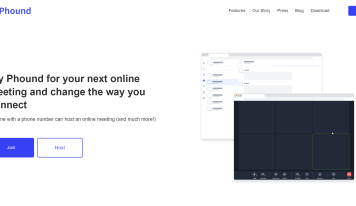
From an evolutionary standpoint regardless of whether we talk about nature or business, adaptation is a key to success in changing environments. During the industrial revolution in London a species of moth with a white color blended in with the bark of the local trees until soot from the nearby factories turned the trees black. Some darker moths were now camouflaged in the dark trees and eventually the species adapted and became black. When air quality improved, the moths over successive generations changed color again.
Although this may not be the most flattering segue, WebRTC is spreading like the soot from factories in London – it’s now available on one-billion endpoints… It’s beyond the point of no return and tech and telecom companies which don’t adapt will get eaten, just like a white moth on a black tree.
It’s worth pointing out there are some potential question marks regarding implementation of this new standard which encompasses peer-to-peer audio, video and data sharing. For example, when will Microsoft and Apple decide to support or ignore this standard.
It seems inconceivable however that either company could ignore WebRTC because quite frankly the ecosystem of companies developing new applications which leverage this new standard is staggering. In fact our upcoming WebRTC World Conference in Atlanta later this month had to expand its exhibit area twice to handle all the companies that wanted to participate.
These and many other entrants and existing organizations will be offering compelling services to the market and in order for companies to take advantage of them, they will have to leverage devices which run Chrome or Firefox as these are currently the browsers supporting the new standard. This will eventually force Redmond and Cupertino to come around and support WebRTC in my opinion.
But I digress – there are a few points regarding this disruptive technology which we should all consider. The first is how Unified Communications or UC vendors will handle this transition. Steve Anderson writes an intriguing piece about the matter on the WebRTC World website and it’s worth a read. Rory Lindstone writes another piece about how gateway vendors such as Voxeo, Huawei and Mavenir are helping bridge the old and new worlds of telecom meaning you won’t have to retire your existing solutions to take advantage of WebRTC.
Doug Mohney also writes on WebRTC World and describes some of the differences between RCS and WebRTC – he explains the latter is on a fast track when compared to the former. He has a good point – I heard about RCS quite often since the last few SuperComm shows which haven’t existed for years and still, RCS seems to be getting rolled out very slowly.
The point is, WebRTC is changing everything again. The same way IP led us to IP communications with new possibilities and entrants in the market, WebRTC will see hundreds if not thousands of new companies releasing products and services and many new entrants will displace older ones.
The adaptable startups and existing companies will make it through this transition and perhaps become tomorrow’s Skype, Facebook or Twitter. You may not realize it but Skype was released six years after the VoIP market was conceived! In other words when it comes to disruption it is difficult to predict who the next winners and losers will be but what you can generally predict is the more adaptable the company to new technology, the better it will do.
Oh and if you made it this far, I have a present for you… Here is a special code you can use for 50% off at WebRTC Conference & Expo. It’s only for friends of Rich Tehrani – if you enter it manually it is: WRTCRich and it will save you $397.50.
I hope to see you at the show.





